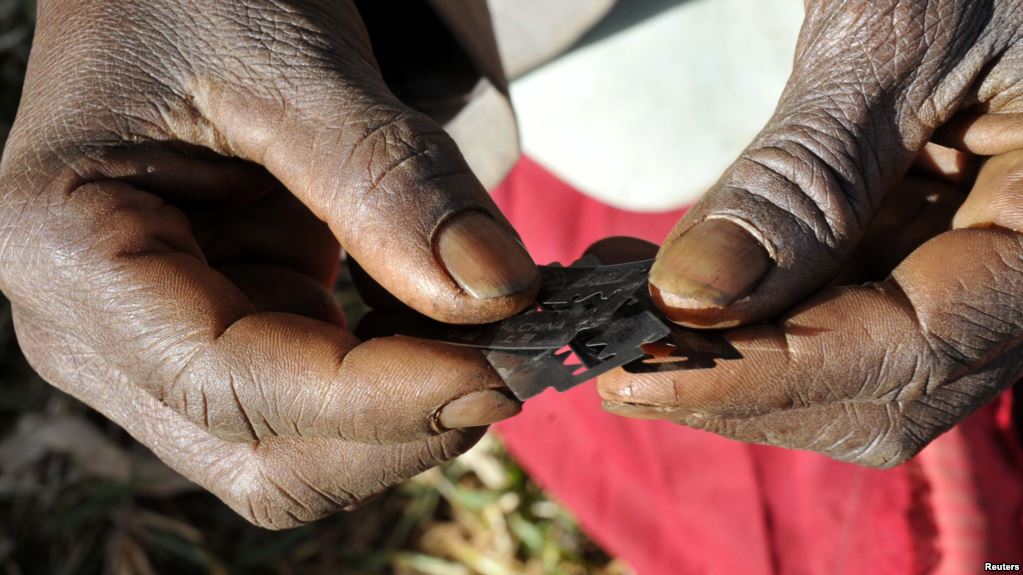Girls in Sebei sub-region endure a painful knife during the infamous Female Genital Mutilation (FGM) simply to be given prestigious names, political leaders have revealed.
Political leaders from Sebei say that the distinctive names such as Chebet and Cheptoris among others are only given to girls who have faced the knife.
The leaders were speaking at a meeting with Speaker of Parliament Rebecca Kadaga at Parliament on Thursday. The meeting was also attended by ministers of Gender, Water and General Duties, MPs from Sebei and Karamoja sub regions, UNICEF and UNFPA country directors on the fight against FGM.
“When the girls are cut, they are given very powerful names such as Chebet, Cheptoris, if you aren’t cut, you don’t get that name, meaning you are a very powerful person and a powerful woman. We should remove that name ‘Chep’, that name must go because a girl who doesn’t cut and doesn’t get that name doesn’t feel she is a woman,” Andrew Napaja, Moroto LCV chairperson said.
As a way to fight FGM, Napaja proposes a law for parents to deter their sons to marry ‘circumcised’ women.
“We want to tell fathers that when you get a son, never marry your son off to a girl who is cut if it will be a law. Those are some of the things that want to be done in the law,” Napaja said.
Speaker Kadaga has vowed to probe the re-occurrence of FGM in Sebei and Karamoja sub regions despite the existence of FGM Act 2010. Kadaga also tasked the ministry of Gender to account for Shs200m that is earmarked for fighting FGM in every financial year.
“I have through the budget and found that every year there is Shs200m from Ministry of Gender for the campaign [FGM] but I cannot trace any evidence of accountability, I don’t even know who receives the money. The school in Amudat has not been constructed, even the one in Nakapiripirit I first had to go there and complain that is when they completed it. Even you, UNFPA I don’t hear you on the ground, that is why I am a very angry person,” Kadaga said.
Apparently, FGM surgeons disguise and sing church hymns during FGM to divert the attention of law enforcement officers.
Sebei leaders also vowed to name and shame political leaders who are orchestrating the promotion of FGM to seek political influence.
State minister for Gender, Peace Mutuzo said that some people especially politicians are profiteering from the practice of FGM to be voted into office. She also attributed the low efforts to fight FGM to strong spiritual convictions by the Sebei people.
“There are some political aspirants for 2021 elections that are mobilizing women and communities and even funding all these processes as a strategy for being voted and being bought to for social acceptability for the next election. There are also spiritual beliefs that the prophets of Sebei to cut as many women as possible so that they plants that flowered recently in the forest does not flower again,” Mutuuzo said.
In her book titled “The Switch” that was launched in 2016, Mary Busingye Karooro Okurut, Minister in charge of General Duties revealed that over 200 girls were circumcised in Sebei region only in 2016.
Karooro’s book-The Switch aims at fighting the female genital mutilation through creating public awareness. The vice has remained rampant in the country especially in the districts of Amudat and Kapchorwa.
According to reports from UNFPA, more than 200m girls and women have gone through this FGM in almost 30 countries in Africa, Middle East and Asia and it is estimated that 86m young girls worldwide are likely to experience some form of the practice by 2030, if current trend continues.
Whereas Uganda national prevalence is at 1.4%, this FGM prevalence is much higher in practicing communities in the districts of Kapchorwa, Kween, Bukwo, Nakapiririt, Moroto and Amudat, ranging between 50 and 95% as of 2016.

